Category Archives: Test translation and localisation

How can you create culturally fair content for tests and surveys?
by Marielle Lerner – Localization Specialist Lost in adaptation If you are involved with the production of international surveys or assessments, you have likely observed the “lost in translation” phenomenon in action. On the other hand, you may have never heard the expression “lost in adaptation”, something that we at cApStAn are always thinking about …
“How can you create culturally fair content for tests and surveys?”
Read More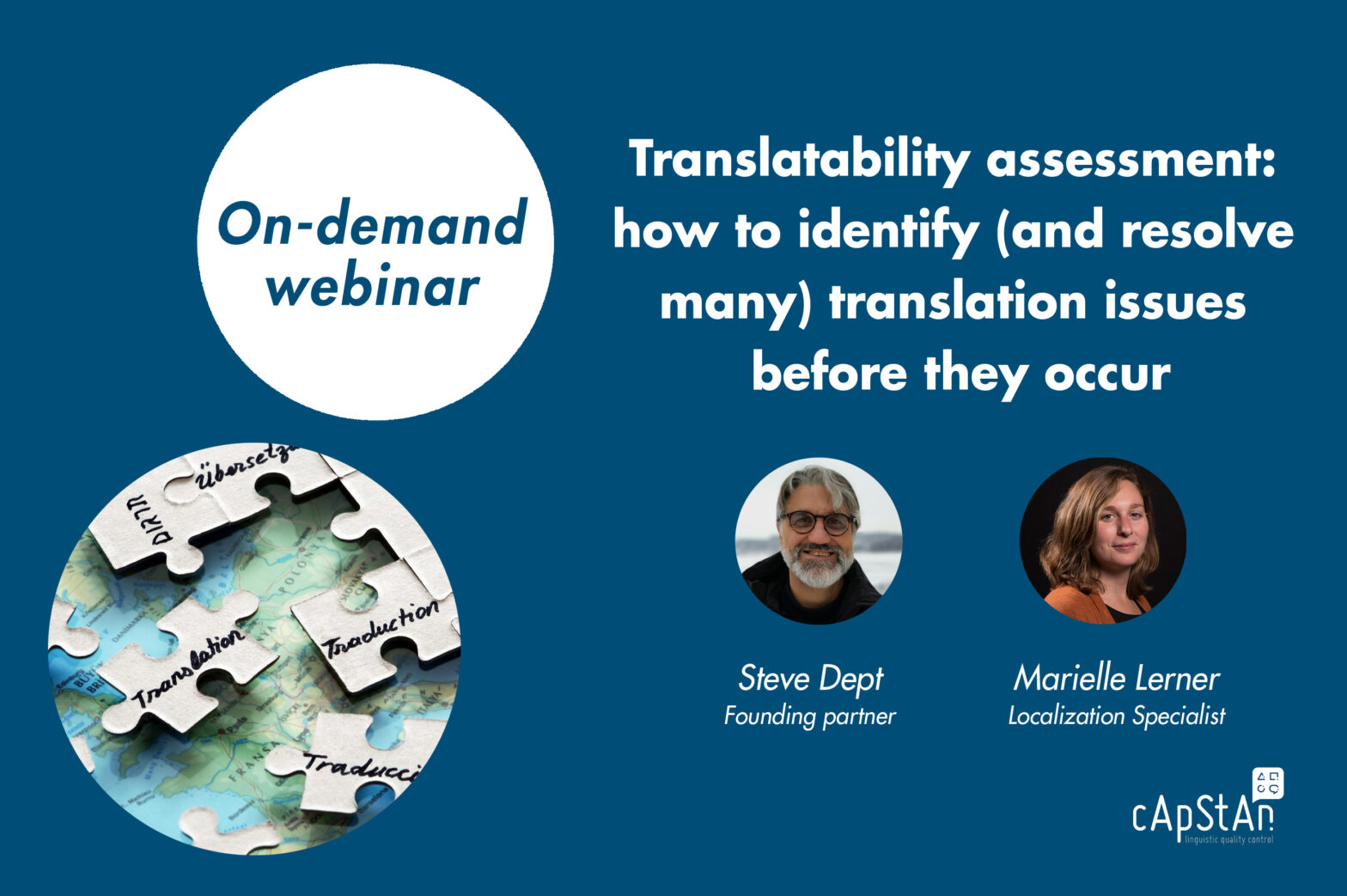
On-Demand Webinar |Translatability Assessment
A translatability assessment (TA) is a tried and tested method to optimize the master version of your assessment or survey questionnaire before the actual translation and adaptation process begins. In many multilingual tests or surveys—not only PISA or PIAAC or Pew Research Center’s Global Attitudes Project—the TA has become an important design step. The TA process increases …
“On-Demand Webinar |Translatability Assessment”
Read More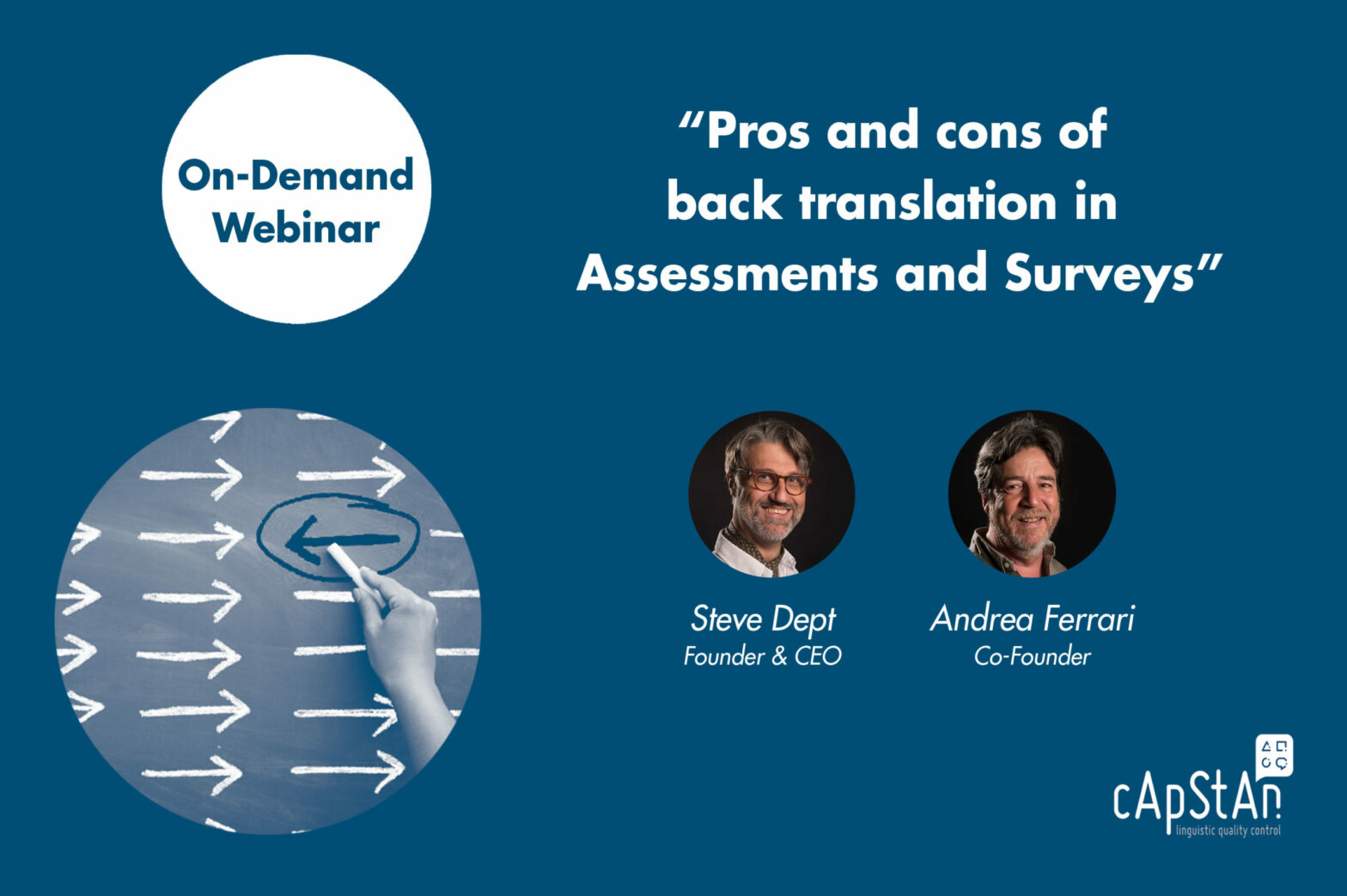
On-Demand Webinar| Pros and cons of back translation in assessments and surveys
Pros and cons of back translation in assessments and surveys A webinar by Andrea FERRARI and Steve DEPT, the founders of cApStAn Linguistic Quality Control. In 45 minutes, they will tell you everything you always wanted to know about back translation but never dared to ask such as: Telling examples from international studies – for which Andrea and Steve were commissioned …
“On-Demand Webinar| Pros and cons of back translation in assessments and surveys”
Read More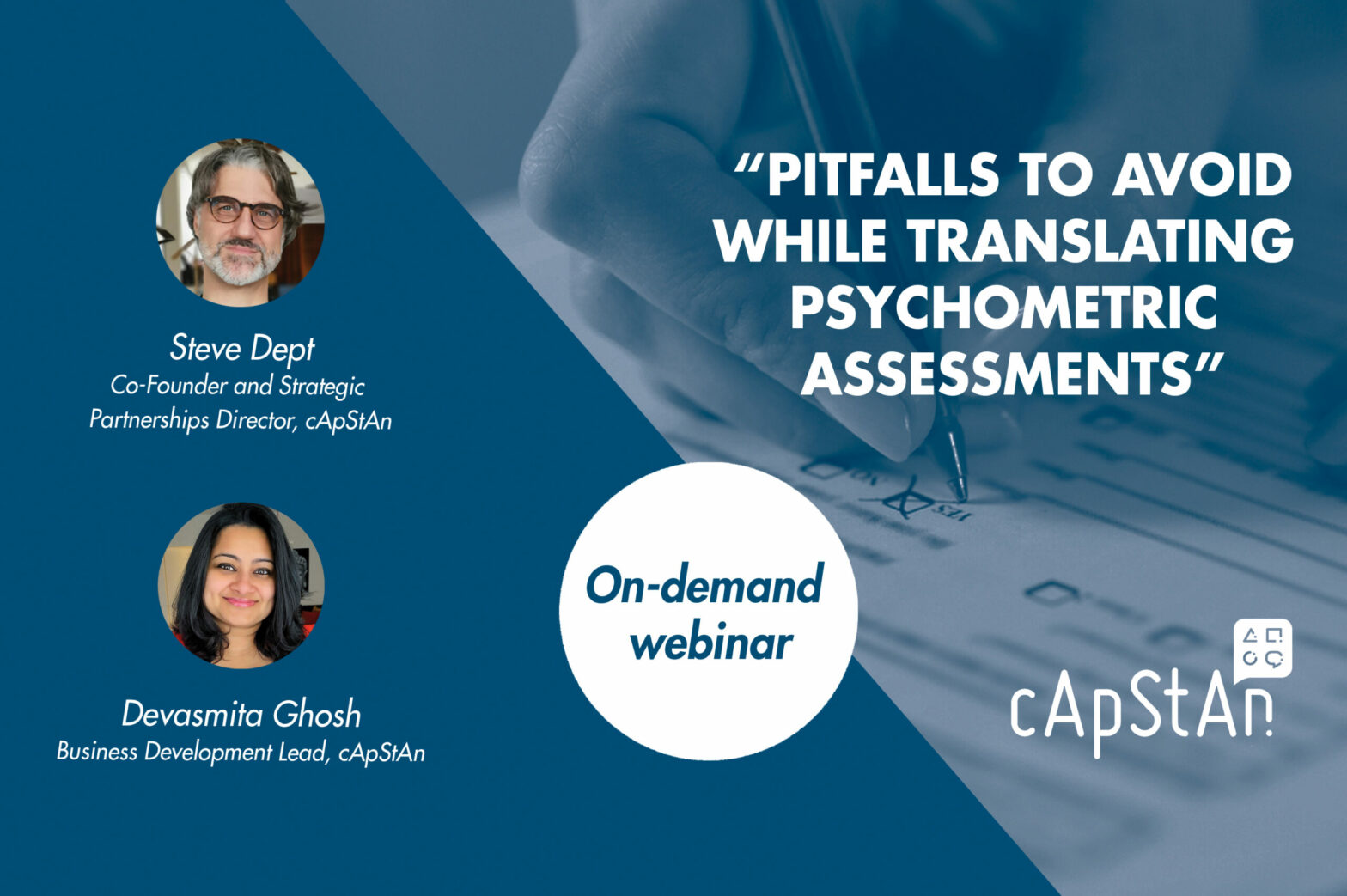
On-Demand Webinar | Pitfalls to Avoid while Translating Psychometric Assessments
Psychometric assessments have become a crucial component of the recruitment and development process at scale. To hire the right candidate, one needs to ensure that the tests are fair, valid, reliable and defensible in all the languages that are available to the test takers. Different types of assessments present different challenges, and we shall show …
“On-Demand Webinar | Pitfalls to Avoid while Translating Psychometric Assessments”
Read More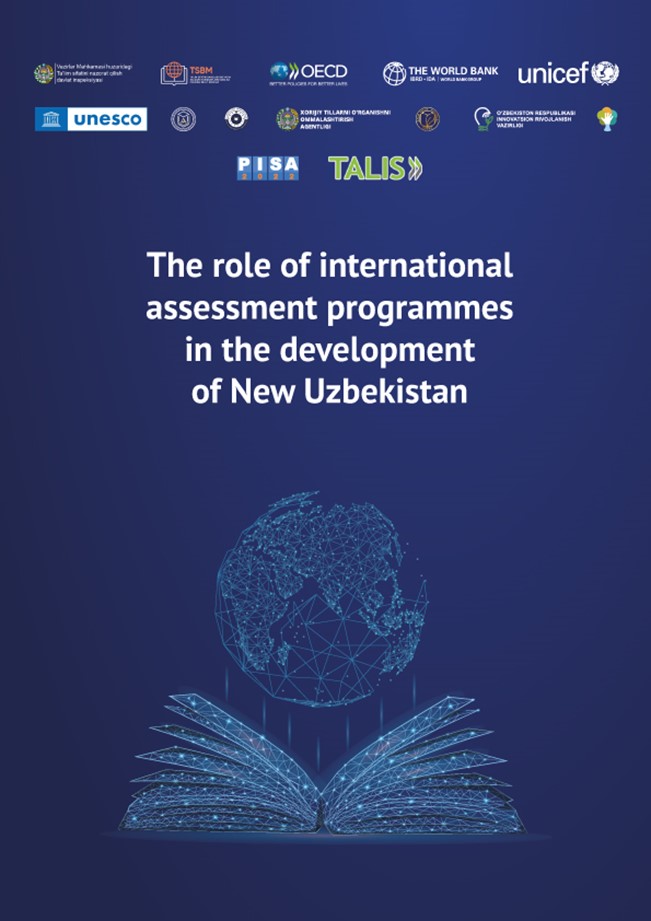
PISA launch event in Uzbekistan | Translation of PISA Assessments – the Gold Standard within reach of National Centers
The State Inspectorate for Supervision of Quality in Education (SISQE), Uzbekistan in collaboration with the Ministry of Public Education, National Center for International Studies on the Assessments of Quality in Education, OECD, UNICEF, World Bank, UNESCO are organizing a in-person/virtual hybrid conference on 11-12 April, 2022 to launch and commemorate Uzbekistan’s participation in PISA 2022 …
Read More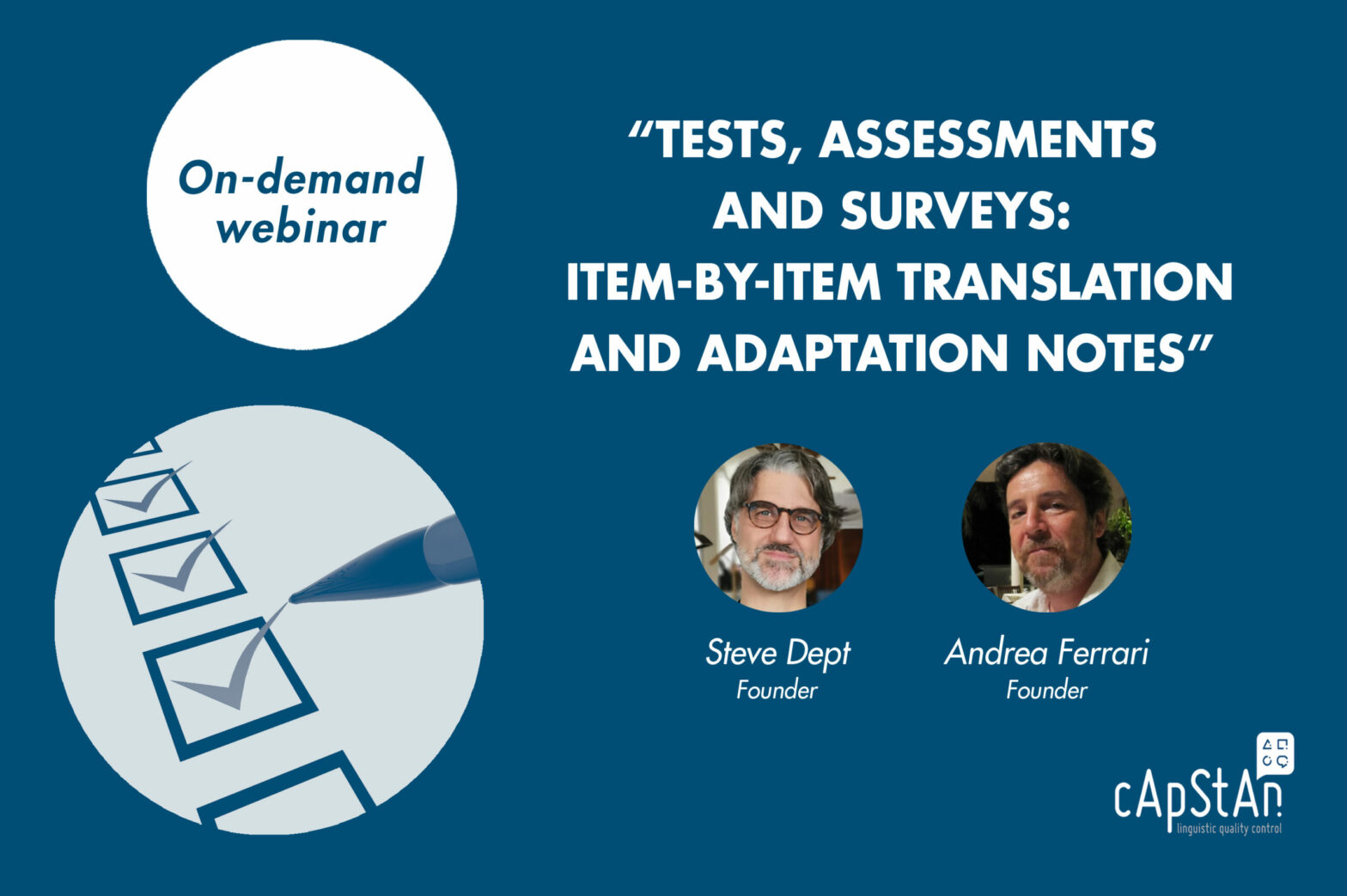
On-Demand Webinar – Tests, Assessments and Surveys: Item-by-item translation and adaptation notes
You need to deploy a test or questionnaire in multiple countries and languages? The reliable validation of translated data collection instruments requires—among other things—a robust QA design. A design that focuses on equivalence, comparability as well as appropriateness in each target culture. Based on +20 years of experience as LQA practitioners, Steve and Andrea profess …
“On-Demand Webinar – Tests, Assessments and Surveys: Item-by-item translation and adaptation notes”
Read More
How to avoid the hidden threats to translation quality in computer-based assessments
by Steve Dept, cApStAn CEO In the first two decades of this century, many test providers have migrated from pencil-and-paper assessments to computer-based assessments and this has driven a surge in sophisticated testing platforms. In some of these computer-based assessments environments, however, scant attention was given to multilingual testing. What many stakeholders do not seem …
“How to avoid the hidden threats to translation quality in computer-based assessments”
Read More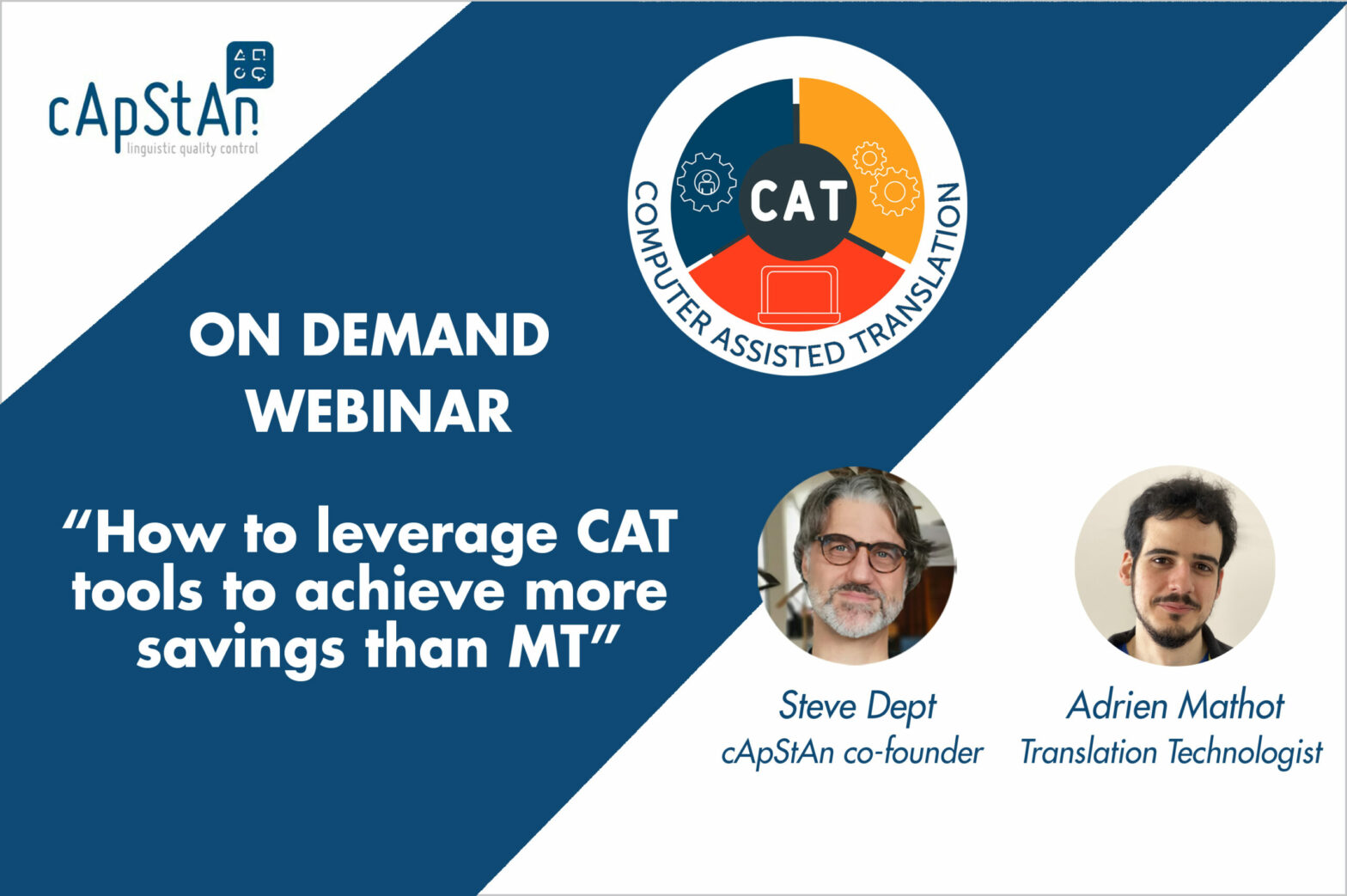
On-Demand Webinar | How to leverage CAT tools to achieve more savings than MT
Computer-assisted translation tools (CAT tools) have been around for 30 years, and they are designed as productivity tools for professional translators. Using CAT tools effectively increases quality, consistency and productivity at scale. Term bases, style guides and translation memories form a powerful combination that (still) give the human translator a competitive edge in terms of quality/price …
“On-Demand Webinar | How to leverage CAT tools to achieve more savings than MT”
Read More
The Chaos Management Skills Assessment Series: A Test Translation Case Study Episode 2 – Translatability Assessment and item-by-item Translation and Adaptation Notes
by Steve Dept, cApStAn CEO By now, readers of this informative series on good practice in test translation are aware that the Chaos Management Skills Assessment is a fictitious project, which we set up for the exclusive purpose of the series. The purpose is to illustrate the complexity of test translation and the added value …
Read More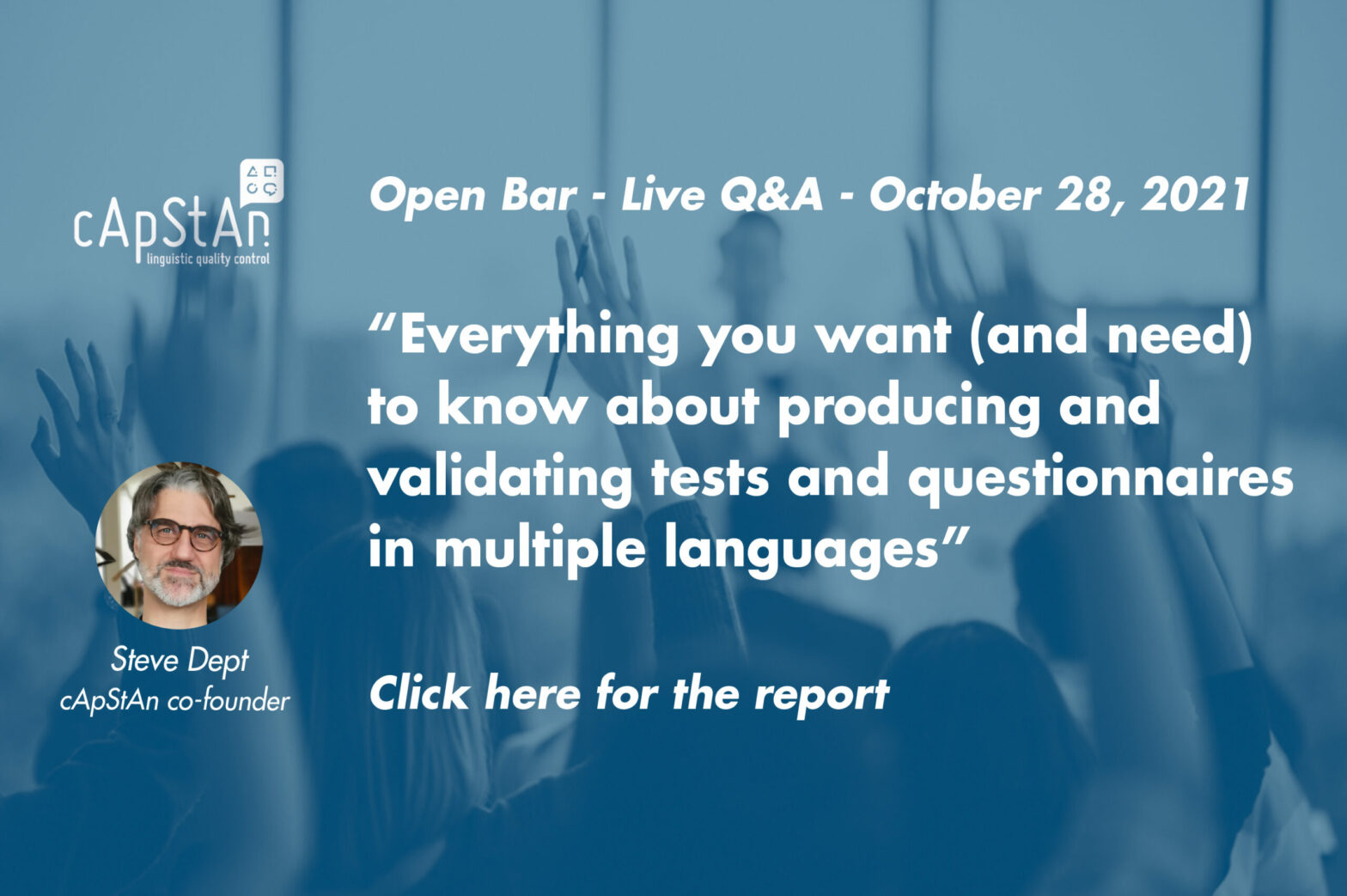
Everything you want (and need) to know about producing and validating tests and questionnaires in multiple languages
by Pisana Ferrari – cApStAn Ambassador to the Global Village Open Bar – Live Q&A – Thursday, October 28, 2021 Our first in the series of cApStAn Open Bar – Live Q&A webinars took place on October 28. Our new format: a very short PowerPoint – with five slides sent to participants in advance– and …
Read More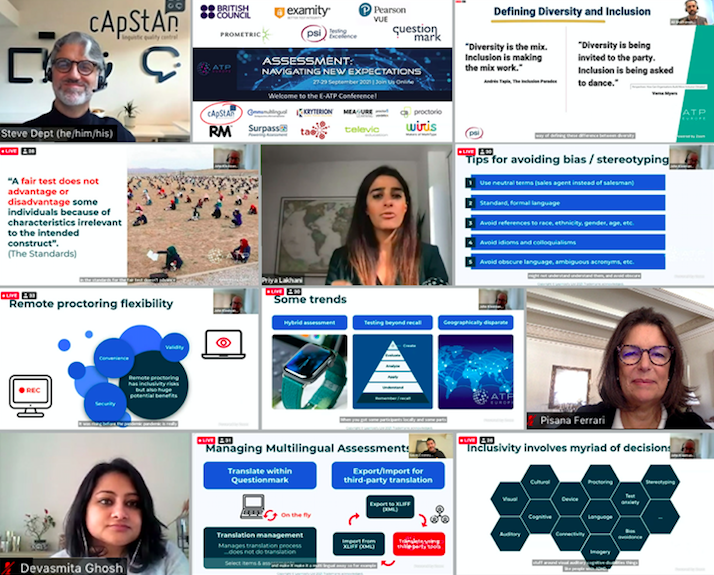
Discussing accessibility, fairness and equity of tests at E-ATP 2021 as we emerge from COVID-19
by Pisana Ferrari – cApStAn Ambassador to the Global Village This year’s edition of the E-ATP conference was a virtual yet vibrant event, where attendees discussed all the facets of disruption in the testing industry due to COVID-19. We attended E-ATP in Dublin (2015), Lisbon (2016), Noordwijk (2017), Athens (2018) and Madrid (2019). cApStAn’s involvement …
“Discussing accessibility, fairness and equity of tests at E-ATP 2021 as we emerge from COVID-19”
Read More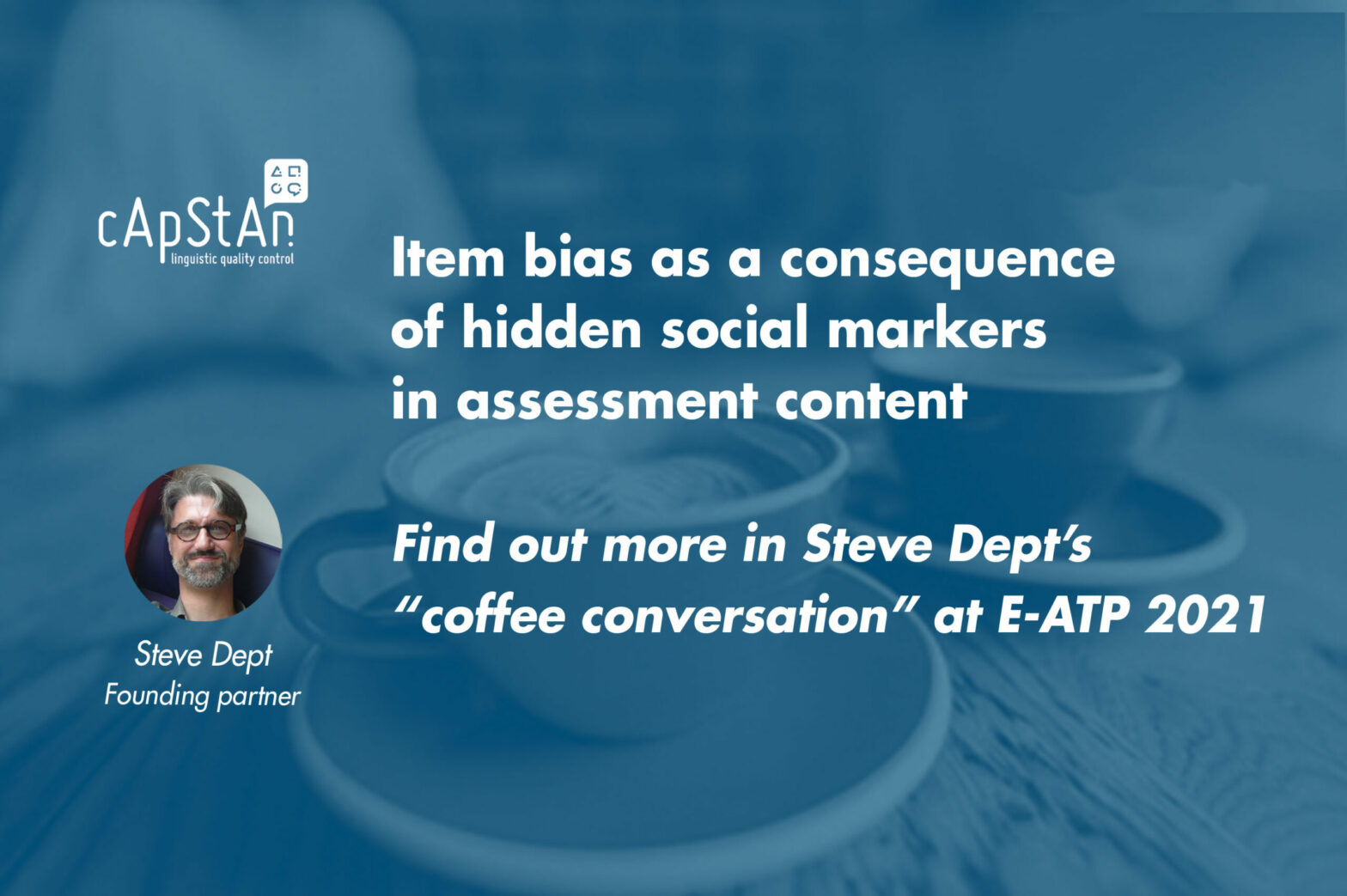
“Item bias as a consequence of hidden social makers in assessment content”. A coffee conversation with cApStAn co-founder Steve Dept at E-ATP 2021
by Pisana Ferrari – cApStAn Ambassador to the Global Village This year’s (virtual) edition of the E-ATP conference, of which cApStAn is a proud sponsor, focussed on the challenges to the testing industry brought on by the COVID-19 pandemic, and how these were met. These include, inter alia, how to address the shift to technology-based …
Read More